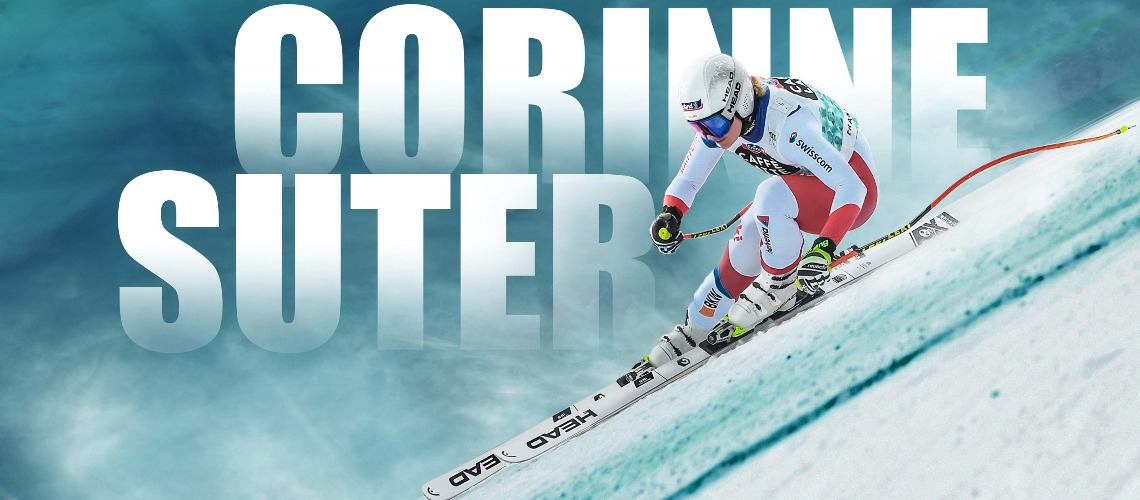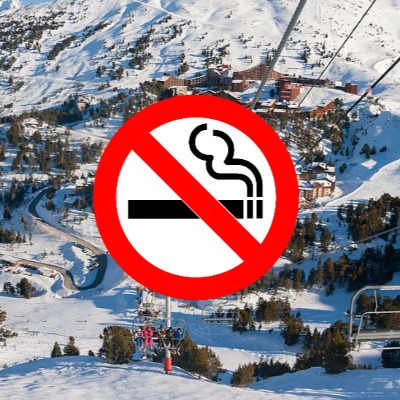Suter Takes Womens' DH Gold

After two medals each at the 2019 World Championships in Are and 2021 in Cortina, where she had also already secured the downhill gold medal, the 27-year-old delivered her masterpiece in China. She was crowned the first Swiss downhill Olympic champion since Dominique Gisin, who triumphed in Sochi in 2014, and sixth overall.
After a delayed start, due to the weather conditions, racers were ready to tackle “The Rock” in today’s women’s downhill race. All eyes were on the reigning downhill Olympic champion, Sofia Goggia (ITA), on whether she would be able to defend her title after her crash 3 weeks ago.
Corinne Suter won on the "The Rock" slope with 16 hundredths ahead of Sofia Goggia, the downhill Olympic champion four years ago. At the last split the Italian, who made a miracle comeback after suffering a knee injury three weeks ago, was still 18 hundredths ahead of Suter. Bronze also went to Italy thanks to Nadia Delago (0.57 seconds back), who has never been on the podium in the World Cup and who was on her absolute debut at the Olympics.
Goggia, just 23 days after the injury she suffered in Cortina d'Ampezzo - scene a return to the track that only an athlete of her caliber could have imagined. The twenty-nine year old financier let herself go to a liberating scream at the finish line after a capital test, with a wonderful descent, which earned her second place 0.16 sec from the victory. For Goggia this is the second consecutive Olympic medal after the gold downhill at PyeongChang 2018.
Goggia said "“I felt inside that I hadn't been very fast because in the last part I didn't feel my skis as fast as I knew. Congratulations to Suter, I would have signed for silver. I'm a little sorry for gold, but it's been such a tough time that today was the easiest day. I dedicate this medal to myself, because I was at the gate, and to all the people who believed in it and who took me by the hand on this path that after Cortina seemed to have gone up in smoke. This medal is of incredible value. The most difficult moment? The Monday after the injury and when I put my skis back on here in Beijing, because I knew I would have to make a huge progression and I was almost afraid even in the free field to trust my leg, to trust myself again. I still felt good at my knee but the hardest moment was certainly when in superg I ran into a trivial slip, hitting the nets but for me it was a hallucinating psychological blow. I thought I had made the situation worse but I had a despondent afternoon in which I thought I would not make it. I believe I got there with willpower. I think I had an incredible progression both physically and on skis, because we needed the courage to jump off a new descent, after Cortina, without ever having gone fast again and I don't think it was for everyone. I truly believed in it, even on the darkest days.
"From December 2020 I was undefeated in the discipline, I was also having a great season in superg and getting hurt so little from the event made me relive the ghosts of the past season knowing that the Olympics is there every four years. I really believed in it, otherwise I wouldn't have made it. At the starting gate I was concentrated but I was only thinking about what I wanted to do on skis. Upon arrival I realized that my skis hadn't given me the usual feeling in the lower part, and I don't think it's a ski talk since they are my favorites, but I think I got a bit wrong in entering the plane - one A corner that never went well even in practice - it was a sensation but I felt I wasn't that fast. I was happy but I knew that four tenths were few. For the subjective value it is the most beautiful enterprise of my career, for the value of the medal no, but for what it means to me yes. I thank the doctors because I think they have also been accused of madness for putting me back on skis (laughs ed). They took on hallucinating responsibilities but since I have always taken their words as the gospel: in fact 12 days later I was on skis ”.
Two Italians have never been seen on the same Olympic downhill podium in the history of skiing, with the only precedent - but in supergiant - at the Salt Lake 2002 Olympics with Daniela's gold Ceccarelli and the bronze of Karen Putzer.
Suter did it like Beat Feuz did at the beginning of the Winter Games In addition to Suter and Feuz, who provided the first Swiss downhill double at the Winter Games since Bernhard Russi and Marie-Theres Nadig in Sapporo in 1972, Lara Gut-Behrami (Super-G) and Marco Odermatt (giant slalom) also won Olympic gold .
Four alpine gold medals at the same Olympic Games is a record for Switzerland. 50 years ago in Sapporo and 1988 in Calgary there were three Swiss Olympic champions from the alpine area.














